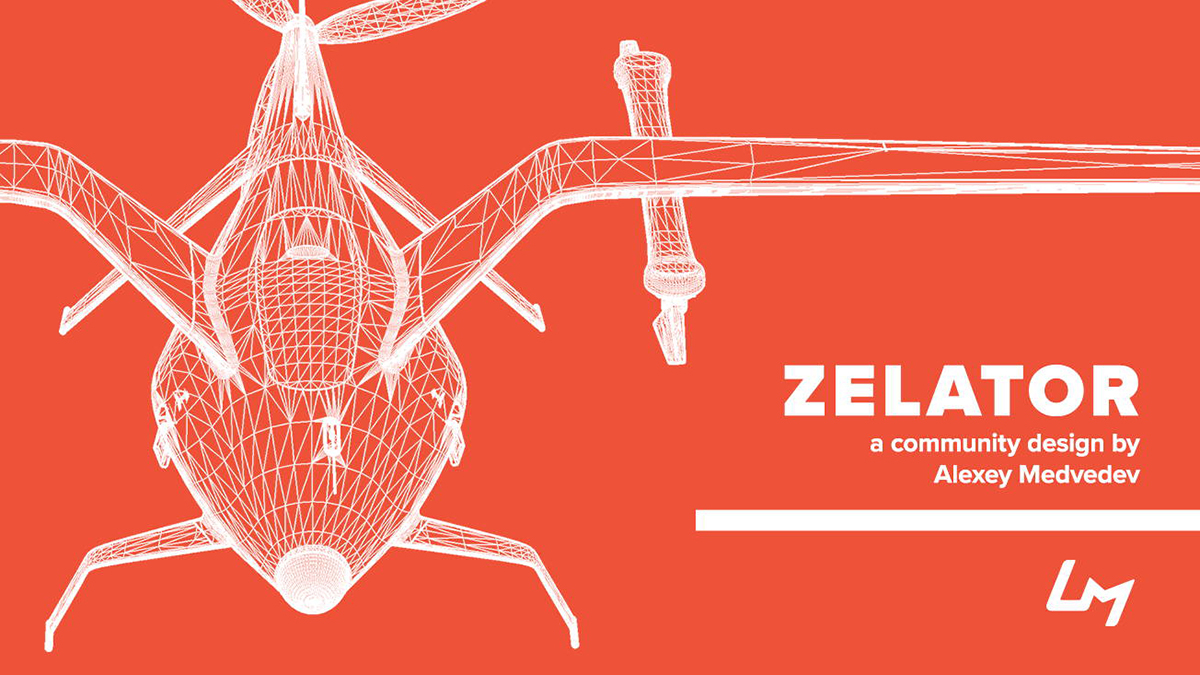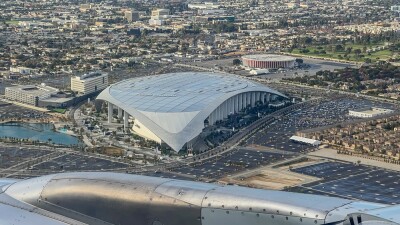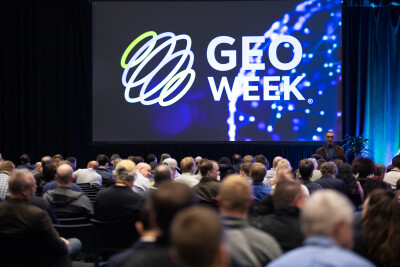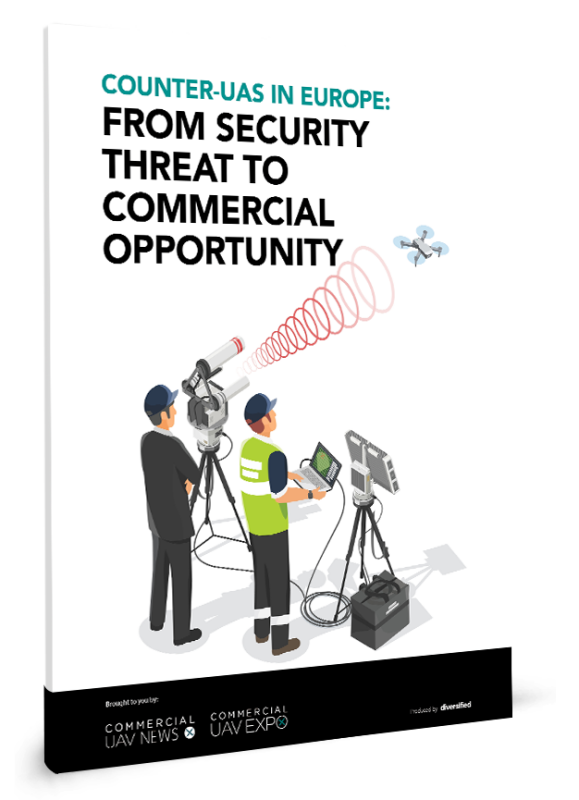While there were numerous informative and innovative keynotes that took place at the 2016 Commercial UAV Expo, it’s no stretch to say that the one delivered by Jay Rogers showcased something different. That shouldn’t come as much of a surprise since he is the CEO & Co-founder of Local Motors, a company that combines open-sourced designs from their online community and micro-factories around the world for manufacturing to create truly innovative products.
This approach to co-creation has enabled Local Motors to go from idea to market in just a few months, while incorporating new technologies that have and are defining the commercial drone space. Their commitment to co-creation led to the Airbus Cargo Drone Challenge, which encouraged participants to design a drone solution with Airbus Group and Local Motors that would be able to transport urgent medical materials to people and places that are difficult to reach.
Jay Rogers
"The rapid development of the Airbus Cargo Drone isn't a miracle. It's what happens when innovation is open and ideas are shared freely." pic.twitter.com/o7mtoga6uM
— Local Motors (@localmotors) November 2, 2016
 That collaborative element is also an aspect of the co-creation project you put together with Airbus. What can you tell us about the origins of the Airbus cargo drone challenge?Airbus had decided that they wanted to take a look at entering the commercial drone space. Local Motors offered them a way to design and develop a product without Airbus having to retool an entire factory just to build a prototype. Our co-creation community submitted more than 400 ideas for the Airbus Cargo Drone Challenge quicker than the company would have been able to do on its own. Quickly transporting urgent medical supplies to people in hard to reach places sounds like an extremely relevant use case for this type of delivery by drone. Will this eventually define what drone delivery actually looks like, as opposed to the package delivery model that some companies have talked up to capture the popular imagination?There are all sorts of use cases for drones. One of those does happen to be package delivery, and this is easy for people to embrace because they see how directly it can influence an every day part of life.Most people aren't regularly thinking about a life-or-death situation and an immediate need for medical supplies, so it makes sense that this may not be a use case that gets the general population excited about drones. I started Local Motors to make a difference in the world though, and it feels right to me to have our first work in the drone space be with a product that could ultimately save lives. What stuck out to you the most about the cargo drone challenge entries?The variety was incredible. No two drones looked the same, and it was inspiring to see how big our community members can dream when given an outlet and an opportunity. Was there a common trait amongst the winners that you could highlight in terms of something that set them all apart?The winners are the ones that co-create early. The ones who post early are the ones who remain most successful, and that's the case across all of our challenges. I don't know that we know the reason for that. How have you seen automation change the way people think about cars? Will autonomous drones have a similar impact in terms of changing the way people think about drone technology?Local Motors worked on a joint challenge with Mouser Electronics in which we asked community members to envision what could be possible in a world where self-driving cars are the norm. We are free to do so much when commuting no longer requires the responsibility of paying attention to the road. Not only are these vehicles safer, but they make our lives better. People are beginning to think about all that they could do during the time they normally would be driving. They could catch up on sleep, get some work done, watch a movie.Drones though are such a new product for most people. I don't think folks have had to opportunity to think about how drones would change if they were autonomous only because they don't know much about drones in general. As drone use becomes more widespread though, it's incredible think about how automated drones could make life better- picking up our dry cleaning, returning a library book for us- handling those everyday errands that eat up a lot of time, clog the roadways and generally make life a little less convenient. What has you excited about the commercial drone space in 2017?I am most looking forward to seeing all of the new use cases that come to life for commercial drones in 2017. What drone services will technology make possible? How will those services make our lives better? This is what excites me most when drone technology and hardware come together.
That collaborative element is also an aspect of the co-creation project you put together with Airbus. What can you tell us about the origins of the Airbus cargo drone challenge?Airbus had decided that they wanted to take a look at entering the commercial drone space. Local Motors offered them a way to design and develop a product without Airbus having to retool an entire factory just to build a prototype. Our co-creation community submitted more than 400 ideas for the Airbus Cargo Drone Challenge quicker than the company would have been able to do on its own. Quickly transporting urgent medical supplies to people in hard to reach places sounds like an extremely relevant use case for this type of delivery by drone. Will this eventually define what drone delivery actually looks like, as opposed to the package delivery model that some companies have talked up to capture the popular imagination?There are all sorts of use cases for drones. One of those does happen to be package delivery, and this is easy for people to embrace because they see how directly it can influence an every day part of life.Most people aren't regularly thinking about a life-or-death situation and an immediate need for medical supplies, so it makes sense that this may not be a use case that gets the general population excited about drones. I started Local Motors to make a difference in the world though, and it feels right to me to have our first work in the drone space be with a product that could ultimately save lives. What stuck out to you the most about the cargo drone challenge entries?The variety was incredible. No two drones looked the same, and it was inspiring to see how big our community members can dream when given an outlet and an opportunity. Was there a common trait amongst the winners that you could highlight in terms of something that set them all apart?The winners are the ones that co-create early. The ones who post early are the ones who remain most successful, and that's the case across all of our challenges. I don't know that we know the reason for that. How have you seen automation change the way people think about cars? Will autonomous drones have a similar impact in terms of changing the way people think about drone technology?Local Motors worked on a joint challenge with Mouser Electronics in which we asked community members to envision what could be possible in a world where self-driving cars are the norm. We are free to do so much when commuting no longer requires the responsibility of paying attention to the road. Not only are these vehicles safer, but they make our lives better. People are beginning to think about all that they could do during the time they normally would be driving. They could catch up on sleep, get some work done, watch a movie.Drones though are such a new product for most people. I don't think folks have had to opportunity to think about how drones would change if they were autonomous only because they don't know much about drones in general. As drone use becomes more widespread though, it's incredible think about how automated drones could make life better- picking up our dry cleaning, returning a library book for us- handling those everyday errands that eat up a lot of time, clog the roadways and generally make life a little less convenient. What has you excited about the commercial drone space in 2017?I am most looking forward to seeing all of the new use cases that come to life for commercial drones in 2017. What drone services will technology make possible? How will those services make our lives better? This is what excites me most when drone technology and hardware come together. 














Comments